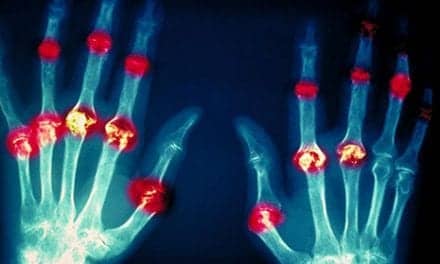Quercetin may not be a household word—yet, but a study by researchers at the University of South Carolina’s Arnold School of Public Health, Columbia, SC, shows that the powerful antioxidant/anti-inflammatory compound found in fruits and vegetables significantly boosts endurance capacity and maximal oxygen capacity (VO2max) in healthy, active but untrained men and women, according to a statement from the facility.
The findings of the study—one of the first in humans to examine the energy-boosting effects of quercetin—are reported in the International Journal of Sports Nutrition and Exercise Metabolism, published online June 24.
Mark Davis, PhD, the study’s lead author and a professor of exercise science, said the fatigue-fighting and health properties of quercetin—found in the skins of red apples, red onions, berries, and grapes—have implications not only for athletes and soldiers whose energy and performance are tested to the extreme, but also for average adults who battle fatigue and stress daily, the statement says.
For the study, funded in part by the Department of Defense, 12 participants were randomly assigned to one of two treatments. Half were given 500 milligrams of quercetin twice a day in Tang for 7 days. The other subjects drank Tang with placebos. After the 7 days of treatment, during which the subjects were told not to alter their physical activity, the participants rode stationary bicycles to the point of fatigue.
Researchers also tested their additional VO2max, one of the most important measures of fitness. Then the participants received the opposite treatment for another 7 days before riding the bicycle to the point of fatigue and VO2max tests. Neither the participants nor the research staff knew who received the quercetin Tang or the placebo Tang, and all subjects took part in the quercetin and placebo treatments.
In the statement, Davis says that the participants were healthy, relatively active, college-age students; they were not physically trained athletes, nor were they taking part in a regular exercise training program.
The results: After taking quercetin for only 7 days, the participants had a 13.2% increase in endurance and a 3.9% increase in VO2max.
In the statement, Davis says that these were statistically significant effects that indicate an important improvement in endurance capacity in a very short time, and he notes that quercetin supplementation was able to mimic some effects of exercise training.
Although the study did not examine why the results were so dramatic, Davis has said that preclinical data suggest that quercetin may increase the mitochondria in brain and muscle cells. He likened the mitochondria to the “powerhouse of the cell,” producing most of its energy. Mitochondria in brain and muscle also are believed to be fundamentally important in battling age-related dementia, obesity, diabetes, and cardiovascular dysfunction, the statement says.
In the statement, Davis says that more mitochondria in the brain and muscle would enhance mental and physical energy and provide a better ability to fight other diseases in which mitochondrial dysfunction are hallmarks.
Quercetin also appears to have valuable properties to fight inflammation, which has been linked to health problems such as colon cancer and heart disease. Davis’ research group has recently received a National Institutes of Health grant to study quercetin’s effects on colon cancer and others are pending that involve breast cancer.
In the statement, Davis concludes that: If the findings of the study and others on the biological mechanisms of quercetin are confirmed in future clinical studies, the implications go beyond improvements in endurance. We may find that quercetin may work in conjunction with regular physical activity as an ally in preventing and treating diabetes, obesity, cardiovascular diseases, and the degenerative diseases of aging.
[Source: University of South Carolina]



